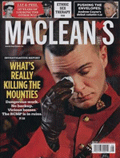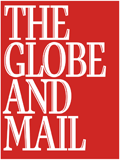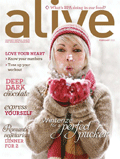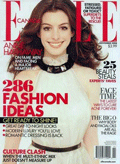Authentic Relationships
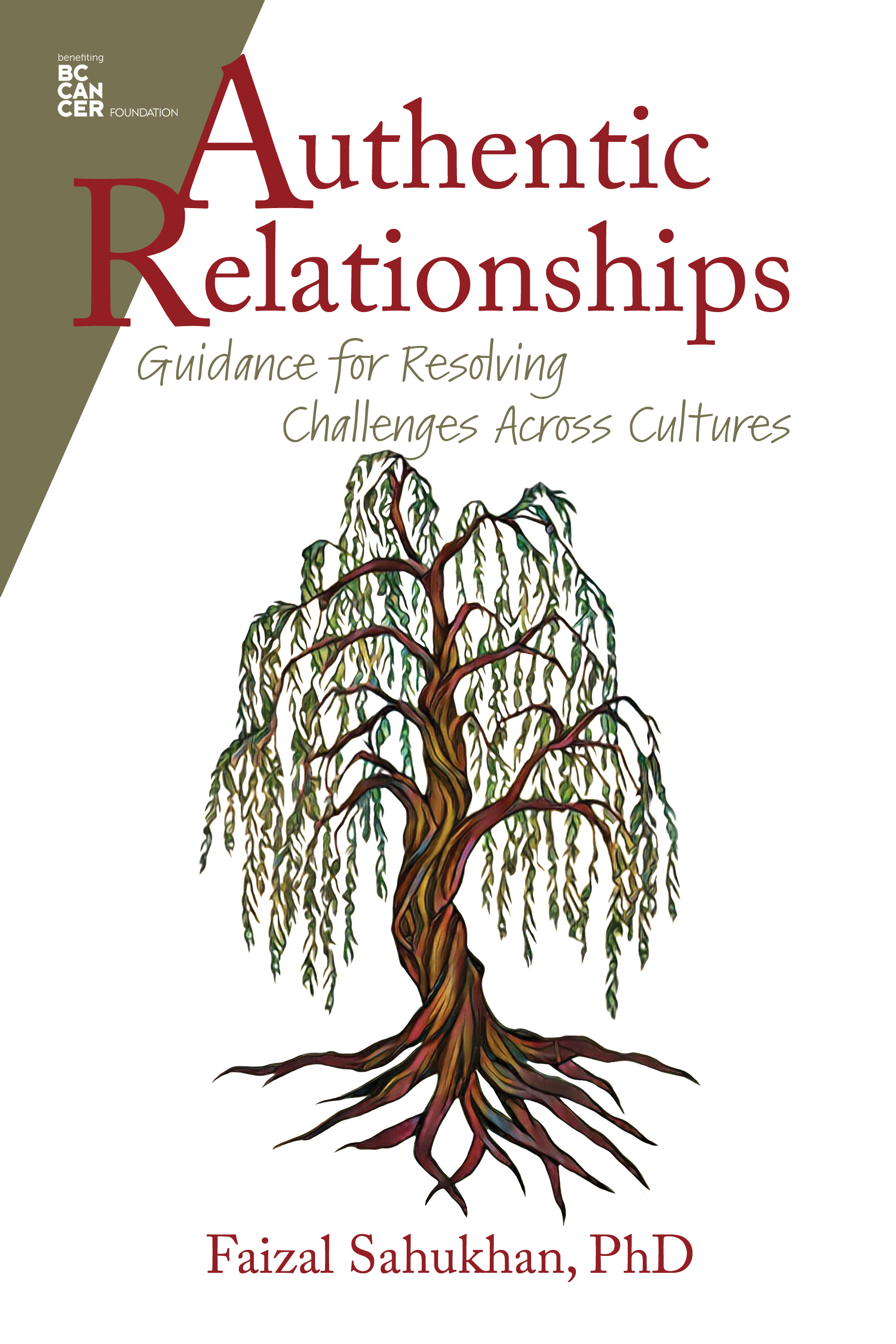 Authentic Relationships: Guidance for Resolving Challenges Across Cultures
Authentic Relationships: Guidance for Resolving Challenges Across Cultures
You are only as authentic as you are willing to be…
For Faizal Sahukhan, growing up as a ‘brown boy’ in his West Canadian hometown meant racism and exclusion. But in a world determined to teach him that being different was a disadvantage, Dr. Faizal has devoted his life to bridging the cultural chasms that so often tear loved ones apart.
So began his fortnightly advice column, “Dear Dr. Faizal.”
From students questioning their parents’ college aspirations for them, to inter-faith couples grappling with their love for one another and their respective gods, to the heartbreak of sexism, racism and sexual prejudices, Dr. Faizal’s profound advice has touched the lives of thousands.
Authentic Relationships comprises a variety of Dr. Faizal’s most enduring responses on the topics of career, diversity, family, intimacy, relationships, and that most elusive of beings — the self. Highly praised for his compassionate and insightful approach, Dr. Faizal offers guidance to inspire, comfort and heal those who have ever felt the tug of conflict in their heart.
Click Buy Now (amazon.ca) or Buy Now (amazon.com) to experience healing with Authentic Relationship today!
About Faizal Sahukhan
Faizal Sahukhan, PhD is a Clinical Counsellor, specializing in multicultural relationship therapy. His portfolio includes writing the Dear Dr Faizal advice column for Metro Vancouver, hosting Love across Cultures on CBC Radio, and holding a national director position for the Canadian Professional Counsellors Association. He is the author of Dating the Ethnic Man: Strategies for Success, a board-approved clinical counseling supervisor, and a curriculum developer and instructor in Stenberg College’s Counselling Therapist Diploma program. Through these channels, Faizal has spent most of his adult life building bridges between cultures. Though an educator, he considers himself a student of humanity.
Reviews
Praise for Authentic Relationships: Guidance for Resolving Challenges Across Cultures
“Authentic Relationships, in my opinion, ranks right up there with the likes of Ann Landers and Dear Abby columns with regards to the sensitive approach to giving fair, straightforward advice. This book addresses topics that every adult – regardless of sex, race, ethnicity, culture, or sexual orientation – can appreciate and identify with. Dr. Faizal tackles issues that affect all of us at different stages of life. A must-read for those seeking to improve their psychological and emotional health.”
— Atul Mehra, Psychotherapist, Speaker, and Bestselling Author of The Unseen Wisdom of the Unborn
“Faizal recognizes each of us is inextricably interconnected in our need for love and intimacy. Inspired by life-changing experiences, unconditional love for his daughters, and passion in his personal and professional connections, Authentic Relationships is a masterfully written book that will help you in your quest to love and understand more deeply.”
— Kristy Higgins, Registered Therapeutic Counselor and Supervisor
“Rarely have I come across so much practical wisdom in such a compact space. Authentic Relationships is a scintillating gem of an advice book, written in a tone of authentic caring.
The attitude toward life that emerges from these columns is wholly admirable: Dr. Faizal is neither a blind social conformist nor a belligerent renegade, but a respecter of culturally diverse ways of being human. No matter what issue someone faces, Dr. Faizal always comes up with a constructive suggestion and often a whole list of suggestions. As this collection of Dr. Faizal’s columns demonstrates, there really is an art to good counseling which requires special gifts of intelligence, empathy, experience and a passionate desire to help.”
— Kurt Preinsperg, Ph.D., Professor of Philosophy, Langara College, Vancouver, BC
“As a respected, highly-trained and experienced therapist in the area of relationships, Dr. Faizal Sahukhan is the gold standard in his sage advice to singles and couples struggling with a variety of relationship and sexual issues. I highly recommend this book.”
— David McKenzie, Ph.D.
“Authentic Relationships is inspirational and healing; it provides encouragement and guidance in different areas of life. As an immigrant, mother of teenagers and woman in the male-dominated tech industry, I found a lot of stories which resonated with me and appreciated Dr. Faizal’s thoughtful and non-judgemental advice. Page after page, the book offers a warm hug and the reassurance that “it is okay” and “there’s always a solution.” I would highly recommend this book to everybody as we all need support, acceptance, love and hope, and Authentic relationships inspires all these.”
— Milena Sarneva
“Practical and compassionate advice from a respected therapist. Pearls of wisdom on every page.”
— John Ince, Author of Joyshift: The Journey to Primal Happiness
Click Buy Now (amazon.ca) or Buy Now (amazon.com) to experience healing with Authentic Relationship today!
Introduction
Growing up as a ‘brown boy’ in Western Canada during the 70s and 80s (the climax of racial tension toward East Indians) was unusually challenging, to say the least. I was punched, spat on, kicked, called Punjab (short for Punjabi), Hindu, and so on, every day by some of my peers. The years of abuse and marginalization were a reflection of their ignorance, constant peer pressure, and poor parenting.
My recollection of the prejudice against my ‘minority’ group goes as far back as my elementary school days when one teacher constantly denigrated members of the visible minority groups at every opportunity. One day, he asked the class to write an essay about our career aspirations. My passion was hockey. However, being of South Asian origin, I was expected to become either a doctor, a lawyer, or an engineer. In my essay, I wrote about how I aspired to become a hockey goalie and a doctor. I specifically remember that, upon returning the essays to the class, the teacher looked me straight in the eye and, with heavy sarcasm and ridicule, said, “…and some people have such high expectations that they know they will never, ever achieve.” We all knew it wasn’t my becoming a hockey goalie that he was referring to. His words penetrated my soul and gave me the biggest bruise anyone at school had ever given me.
At 12 years old, I could have despised this teacher, and Caucasian people, in general. Instead, I chose the path of forgiveness, tolerance, and non-judgment. Despite the many years of hatred towards my kindred, I have always shown great respect to different races and cultures — first as a child, then later as a clinical counselor, working in cross-cultural settings.
I feel blessed that my work has been appreciated by the media, who have called me the “cross-cultural love guru” (The Globe and Mail) and have sensed my commitment to promoting compassion and acceptance: “Sahukhan’s very passionate about helping couples from different cultures understand each other” (Maclean’s). Respecting my professional portfolio, Stenberg College asked me to join their curriculum developers to create a Counseling Therapist Diploma Program, which I later taught to their students. I was given my own advice column (published every two weeks in the Metro Vancouver daily newspaper) and had a thriving practice in which I was “building bridges between people of different ethnic backgrounds, specializing in counseling couples in cross-cultural relationships” (The Georgia Straight), and I was one of the National Directors of the Canadian Professional Counsellors Association. Life was good, until…
“Faizal, you have peripheral T-cell lymphoma,” said an oncologist at Vancouver General Hospital. I was diagnosed with an aggressive and rare form of cancer. I felt numb with disbelief. At times like this, you can either lose heart or make the best of the time you have left — or, even better, you can fight to overcome the statistics. With great determination, I chose the latter. My journey began and, for the next year, I had various tests, exams, scans, and aggressive chemotherapy, as well as hospitalization for a stem-cell transplant.
My hospitalization was a time for reflection, insight, and personal growth. I fondly remember one morning when my night nurse (I’ll call her Rose) in the oncology ward visited me. “Time for your vitals, Faizal,” she said. It was 5:30am. As I placed my computer on my table to make room for the nurse to attach my blood pressure monitor and assess my heart rate, I noticed her perplexed expression. After taking my temperature, she said, with the most gentle and respectful tone, “May I ask you something?” Here goes, I thought. Rose, knowing that I was a clinical counselor, is looking for some therapy. Instead, she placed me in the ‘client’s chair’ and asked me something that required thought and processing: “Why are you still working on your column at this point of your healing?” I could have told her I was on a deadline and that my column
was due by the end of the day, but she was clearly looking for a deeper response — something more meaningful.
Tears rolled down my then-sunken cheeks, and two faces flashed before me. Fears flooded my mind: What if the treatment I’ve been undergoing doesn’t work? What if I have little time left? What will my daughters do without their father to help guide them through life’s adversities?
This column has been inspirited by my daughters, Malaika and Alishba. They have been my inspiration, and I hope that my responses to the plethora of questions from the public will help them as they grow up and face the typical concerns that we all experience at different times in our lives.
I wore many different ‘hats’ in responding to my readers. I was an academic advisor to the youth who needed guidance on how to proceed with a career in counseling or psychology. I was a career advisor to those having challenges finding their ideal job, despite being highly qualified.
Adolescents have relied on this column to help address issues with their parents while cultivating greater mutual acceptance, gratitude, and understanding: My parents want me to be an engineer, and I’m studying to be one… but I want to be an entrepreneur and do my own thing. I’m an 18-year-old male, and my Chinese parents are pushing me to become a lawyer or a doctor, but I want to follow my passion for fashion design.
I was a friend to those seeking validation at the workplace, and I helped with assertiveness training for individuals being exploited by their employers.
Then a cross-cultural couple disagreed about whether to share with their 5-year-old son that they are expecting another child and whether to tell their child where babies come from. I took the elder approach, clarifying the misunderstanding stemming from this particular couple’s culture of origin and advocating authentic sharing to help their son bond with his future sibling.
Next, I’m wearing a pastor-counseling cap with an inter-faith couple who needed reassurance that they were making the right decision in marrying each other. There is a series of questions I ask the clients who come in for pre-marital counseling. They need guidance, and my job is to assess their situation, help them to reframe any misconceptions, and reassure them of their decision before they commit.
Teenagers have written to this column seeking advice on their relations with their boyfriends, girlfriends, or parents. They have shared stories about keeping their relationship a secret from their parents, who wouldn’t understand their love for their partner. In me, they found an ‘uncle’ who listened, empathized, and responded without judging or patronizing them.
Dear Dr. Faizal also appealed to parents, who wrote to me expressing some of their concerns, as well as their inability to connect with their children who were, invariably, young and playing with their genitals; interested in dating; struggling with their identity; rebelling against the parents’ traditions; having a difficult time dealing with their parents getting a divorce; getting caught shoplifting; or seeking affection from their parents but not knowing how to get it. Some were adults themselves who continued to leech off their parents.
Many readers who faced discrimination such as sexism, racism, and prejudice against their sexual orientation needed a place to vent — a place to be heard, honored, and validated. I am pleased that my column provided a safe space for them to share their most personal issues — to express themselves, knowing that they would not be judged, and to find comfort in a nurturing place where they could just be themselves.
In writing the Dear Dr. Faizal column, I was deeply moved by the conflicts experienced by my readers. My heart went out to the young woman who fell in love with her partner and later fiancé, only for him to admit that he was gay. She still had hope, wondering, Is it possible for my fiancé to become heterosexual if I love him enough? I felt for the immigrant dad who worked three jobs to provide for the family while his young daughter longed to feel loved and be hugged by him. I empathized with the parent who was going through a divorce and was terrified to break the news to his kids: I love my kids, but my wife seems to have a deeper bond with them. I don’t want to lose them or hurt them. I felt sad for the woman who was arranged to marry a man she loved, only to discover that he expected her to be a virgin (which she was not); she contemplated ways to ‘prove’ her virginity, fearing that if she told him the truth, he and his family might back out of this union. I felt for the young woman, torn between her love for her boyfriend and her obligation toward her mother, who could not accept her daughter being in a cross-cultural relationship. A widow who lost her husband to cancer had a hard time moving on. What she needed was to grieve her loss, dwell in gratitude for the times she shared with her partner, and accept closure.
Now, having lived with cancer for almost five years myself, I owe a significant amount of my healing to all those who wrote in and kept me going, knowing that my work was appreciated. I feel humbled by my loyal readers for their sharing of themselves and for their trust in me to offer them guidance for their growth. Helping my readers has helped me grow — to recognize the fragility of life, the power behind self-love, and the gift of accepting the love of others. Through this book, I feel blessed to be able to share my readers and myself, with you.
Foreword
Statistics reveal that the average human lifespan is over 70 years, although one could argue that many of those years are wasted if we do not stay true to our authentic selves.
I recall, as a child, playing a game with my father. I would ask him a deep question, and each time he gave me an answer, I would ask, “Why?” My father would answer again, and I would again ask, “Why?” My father patiently gave long answers until he finally ran out of reasoning to offer me.
Then, he would say, “That’s just how it is, beti.” I found this game entertaining because it wasn’t often that I asked my father a question to which he did not have an answer. I felt safe knowing that, in a world saturated with questions, there was my father, my Baba. I pray that he and I have many more years for me to ask him questions and hear his answers.
Having Faizal Sahukhan as a father, I have grown up hearing extensively about multicultural relationships. Multiculturalism — specifically, multicultural relationships — is a growing concept, making it increasingly relevant globally. I am a Pakistani-Fijian Canadian and have always enjoyed witnessing my parents take bits and pieces of their own cultures to create a fusion for my sister and me. Later on in life, I also happened to marry a man of mixed ethnicity. This book not only offers multicultural relationship advice across topics, but keeps a sense of cultural sensitivity infused in every question answered. Discussions around socially stigmatized topics are often difficult for young adults to have with their immigrant parents. I applaud my father’s open, non-judgmental, and genuine approach to tackling such questions.
Life as a young adult venturing out into the world is like being an explorer in a dark cave with only a single flashlight. Oftentimes, we only see the path we choose to enlighten, and every other path of opportunity remains undetected. This book sheds light on many everyday concerns, providing pathways and stepping-stones that guide people toward their inner peace.
My father is a successful psychologist, an author, and a professor. The common ground between these three professions is the concept of fatherhood. A father listens. A father advises. A father role-models. I see this book as a collection of wise words from a father living with cancer to the children of the world. With the turn of every page, you will feel heard, understood, and lovingly guided.
He never looked for praises.
He was never one to boast.
He just went on quietly working
for the ones he loved the most.
His dreams were seldom spoken.
His wants were very few.
And most of the time his worries
went unspoken too.
He was there… a firm foundation
through all our storms in life.
A sturdy hand to hold on to
in times of stress and strife.
A true friend we could turn to
when times were good and bad.
One of our greatest blessings:
the man we call dad.
— Karen K. Boyer
— Malaika Faizal Sahukhan
Click Buy Now (amazon.ca) or Buy Now (amazon.com) to experience healing with Authentic Relationship today!
Faizal Sahukhan discussing his book, Authentic Relationships, on Global TV News

